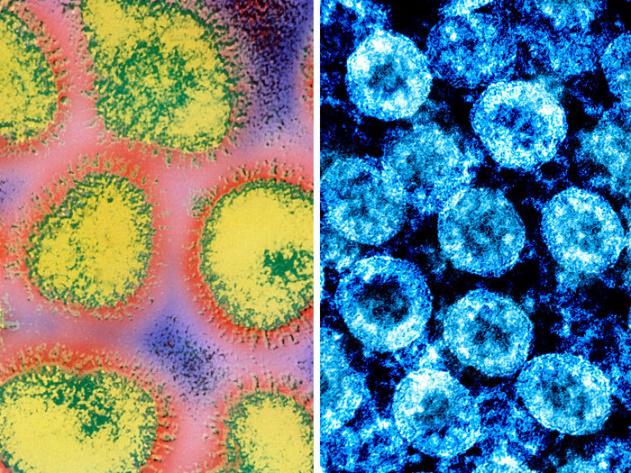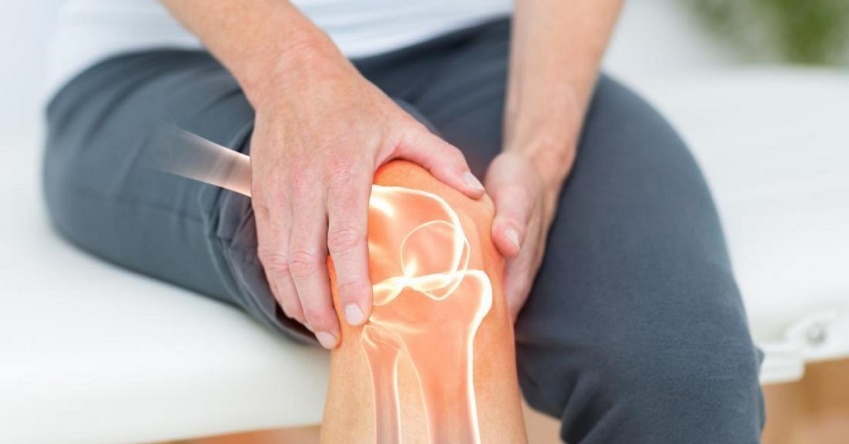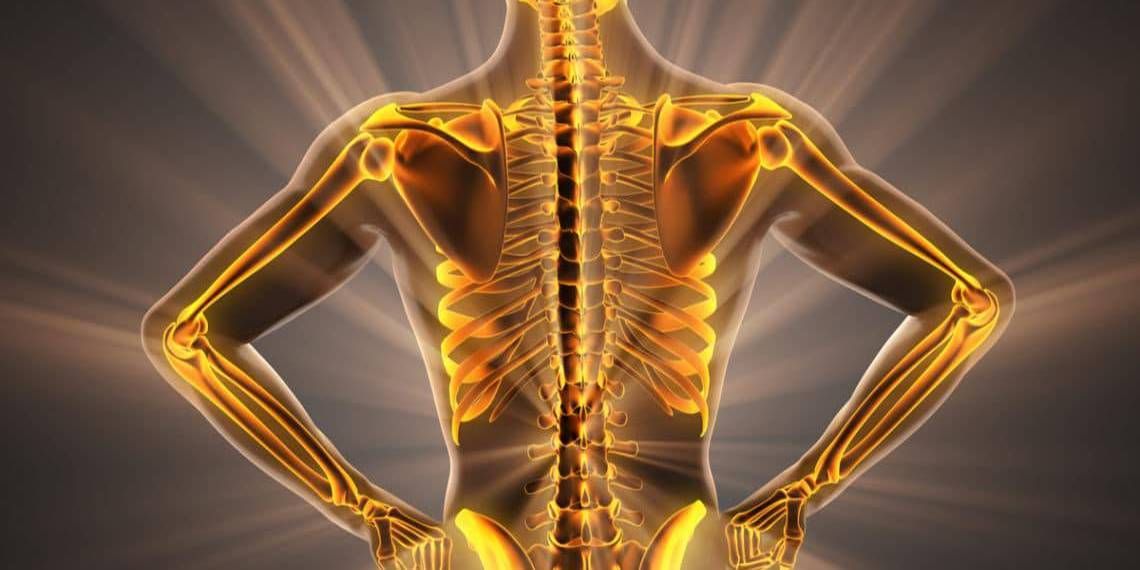Vitamin B1 (Thiamine or Thiamin)
Vitamin B1, or thiamine, is a vitamin that the body requires for energy metabolism and for cell growth, function, and development. Thiamine is also necessary for the proper function of the brain. It is found in meat, fish, and whole grains. Breakfast cereals are often fortified with vitamin B1. Women who are pregnant or breastfeeding require greater amounts of thiamine. People with certain conditions, including HIV, diabetes, and alcohol dependence often have low levels of this vitamin. People who undergo bariatric surgery may suffer from thiamine deficiency due to malabsorption. Symptoms of thiamine deficiency include weight loss, memory loss, muscle weakness, enlarged heart, and mental signs and symptoms.
Vitamin B2 (Riboflavin)
Vitamin B2, or riboflavin, is a vitamin that the body needs to produce energy and facilitate cell growth, function, and development. It is also used to metabolize drugs and fats. The vitamin is bright yellow. It is found in organ meats, eggs, milk, lean meats, and vegetables. Cereals and some grains are fortified with riboflavin. People who are vegetarian or vegan may become deficient in riboflavin. Supplemental riboflavin may be an effective treatment for people who suffer from migraines. Taking a riboflavin supplement may cause urine to turn a bright yellow color.
Vitamin B3 (Niacin)
Vitamin B3, or niacin, is a B vitamin that the body uses to convert food into energy and store it. It also aids the function of nerves and promotes the health of the skin, tissues, and digestive system. Niacin is found in milk, eggs, canned tuna, lean meats, fish, peanuts, legumes, and poultry. You can find niacin in milk, eggs, rice, lean meats, peanuts, poultry, legumes, and enriched cereals and breads. A deficiency in vitamin B3 is called pellagra. Symptoms of the condition include mental problems, dementia, digestive problems, and dermatitis. As a supplement, normal or large doses of niacin may produce flushing that includes redness, a feeling of warmth on the skin, and itching or tingling in the face, arms, neck, or upper chest. Avoid drinking alcohol and drinking hot beverages when you take niacin because it can make flushing worse. Newer forms of the vitamin (nicotinic acid and nicotinamide) minimize or eliminate flushing altogether.
Vitamin B6
Vitamin B6 is a B vitamin that is needed for more than 100 different reactions in the body. It is critical for proper brain function, to manufacture neurotransmitters, and it helps regulate mood. The vitamin may protect against colorectal cancer, memory loss, and premenstrual syndrome (PMS). Good sources of this vitamin include beef liver, lean meat, legumes, fish, leafy greens, starchy vegetables like potatoes, and fruits (excluding citrus fruit). Fortified cereals have the vitamin, too. Vitamin B6 deficiency may result in muscle weakness, irritability, depression, nervousness, trouble concentrating, and short-term memory loss.
Vitamin B12
Vitamin B12, or cobalamin, is a vitamin that helps you break down food for energy. Your body uses it to form red blood cells and DNA. You also need it for proper neurological function and to make SAMe, a compound your body needs to make genetic material, proteins, hormones, and fats. Vitamin B12 is found in clams, liver, fortified cereal, fish, meat, dairy products, and eggs. A vitamin B12 deficiency may lead to fatigue, weakness, constipation, weight loss, loss of appetite, and neurological trouble including depression, memory problems, confusion, dementia, difficulty with balance, and numbness and tingling in the hands and feet. People at risk for B12 deficiency include those with gastrointestinal disorders that affect nutrient absorption (celiac disease, pernicious anemia, atrophic gastritis), vegetarians, and pregnant women or those who are lactating who are vegetarians. Their infants may suffer from B12 deficiency as well. People in these groups should take a vitamin B12 supplement.
Vitamin C
Vitamin C (also termed ascorbic acid) is an antioxidant vitamin that your body needs to maintain healthy bones, skin, and muscles. Good food sources of vitamin C include lemons, papaya, strawberries, orange juice, kiwi, bell peppers, cantaloupe, broccoli, and other types of fruits and veggies. Most people easily get enough vitamin C in their daily diets. Contrary to popular belief, vitamin C does not prevent colds, but it may help shorten the duration of the common cold if you take a supplement regularly. Vitamin C is a water-soluble vitamin so you need to eat vitamin C rich foods regularly or take a supplement to make sure you always maintain adequate levels. A deficiency of vitamin C was a cause of scurvy (swollen, bleeding gums, loose teeth and poor wound healing) in sailors and others who had diet lacking in fresh citrus fruits and vegetables. Although claims of vitamin C in high doses effectively treats coronavirus COVID-19, there is no science to back up this assertion.
Calcium
Calcium is a critical mineral that helps make up your teeth and bones. It is also necessary for muscle contractions, including the proper functioning of the heart. Good food sources of calcium include milk, yogurt, and cheese. Broccoli and green leafy vegetables like kale also have calcium. Sardines and salmon with bones supply calcium. So do calcium-fortified orange juice and cereal. Daily calcium requirements differ due to your age and gender. Some groups of people are at risk for having inadequate calcium levels. Postmenopausal women, vegans, vegetarians, and women who do not have their periods due to anorexia or excessive athleticism may have inadequate calcium levels. Ask your doctor if you should take a calcium supplement. If you take any medications, ask your doctor or pharmacist whether or not calcium supplements interact with anything you are taking.
Chromium
Chromium is a so called, trace mineral, meaning humans require small amounts of this nutrient. Your body uses chromium to regulate blood sugar. Good food sources of chromium include broccoli, grape juice, English muffins, potatoes, and garlic. You may excrete more chromium in your urine if you are sick, stressed, or are a woman who is pregnant or lactating. Strenuous exercise can deplete chromium stores, too. Eating a diet that is high in simple sugars, the kind your body breaks down easily, encourages the loss of chromium. Chromium supplements are touted as weight loss aids but there is no scientific evidence that supports these claims.
Vitamin D
Vitamin D is a fat-soluble vitamin that the body needs to regulate cell growth, combat inflammation, and enhance immune function that may help your body to fight infection (even viral infections like coronavirus COVID-19 SARS-CoV-2). Vitamin D works with calcium to maintain strong, healthy bones and help prevent osteoporosis. Good sources of vitamin D include fatty fish like salmon, mackerel, and tuna. Smaller amounts are found in egg yolks. Fortified milk and orange juice may contain vitamin D as well. The best way to get vitamin D is to spend approximately 10-15 minutes outside in the sun on a clear day without sunscreen. Your skin manufactures vitamin D when you get sun exposure. Be careful not to burn! Excess sun exposure and sun burns increase the risk of skin cancer.
Vitamin E
Vitamin E is an antioxidant vitamin that protects cells against free radicals. Free radicals may be produced by things that can harm cells and tissues including pollution, cigarette smoke, sunlight, and more. Good sources of vitamin E include wheat germ oil, sunflower seeds, almonds, hazelnuts, and peanuts. Nut butters are good sources of vitamin E. If you are allergic to nuts, smaller amounts of vitamin E are found in safflower oil, sunflower oil, broccoli, leafy vegetables, and spinach. However, some people with bleeding problems or who take drugs that may increase bleeding should discuss with their doctor about avoiding high levels of vitamin E that may increase their risk of bleeding.
Folic Acid
Folate is a B vitamin. Natural sources are found in green leafy vegetables, nuts, meat, poultry, beans, fruit, seafood, eggs, grains, liver, spinach, asparagus and Brussels sprouts. Some cereals and other foods are fortified with a form of the vitamin called folic acid. It is necessary to make DNA. It also prevents birth defects in the brain and spina bifida. It is critical that pregnant women and women who intend to become pregnant get adequate levels of folate in their diets. A supplement may be recommended. Prenatal vitamins for women often contain approximately 400 micrograms of folic acid. People who suffer from alcoholism or who have malabsorptive disorders like celiac disease or inflammatory bowel disease (IBD) may suffer from folate deficiency. Ask your doctor if a supplement is in order if you have these conditions.
Vitamin K
Vitamin K is a nutrient that is necessary to maintain healthy bones. It serves as a coenzyme, or a necessary helper, for the production of proteins that aid in both blood clotting and bone metabolism. Vitamin K is found in abundance in leafy vegetables like collards, turnip greens, spinach, and kale. It is also found in broccoli. Smaller amounts are found in soy, carrot juice, canned pumpkin, pomegranate juice, and okra. The best natural source of vitamin K that has the greatest amount of this vitamin is a fermented soybean dish, otherwise known as natto. Vitamin K interferes with blood-thinning medication like warfarin. Follow your doctor's dietary instructions if you are taking blood thinners.
Iodine
Iodine is a trace mineral that is critical for the proper function of the thyroid gland. Insufficient levels of iodine may result in goiter, an enlarged thyroid gland. Natural sources of iodine include seaweed, cod, yogurt, and milk. Table salt and bread are often enriched with the mineral, so iodine deficiency is rare in the U.S. Just as low levels of iodine can be harmful to health and to the function of the thyroid gland, high levels of the trace mineral can lead to goiter and hypothyroidism as well. Iodine supplements may interact with certain diuretics, blood pressure medications, and anti-thyroid medications.
Iron
Iron is a mineral that is critical in the body because it is a constituent of hemoglobin, the protein that carries oxygen from the lungs and delivers it to tissues. You need enough iron to make healthy red blood cells. A lack of iron causes a condition called iron deficiency anemia. This condition makes you tired because tissues do not receive enough oxygen. Women who are pregnant and those who have heavy menstrual cycles have greater requirements for iron. The best sources of iron include fortified breakfast cereal, oysters, white beans, dark chocolate, and beef liver. Smaller amounts are found in spinach, lentils, kidney beans, sardines, and chickpeas. If you take an iron supplement, take it with a little vitamin C or vitamin C-rich food because this nutrient boosts the absorption of the mineral.
Magnesium
Magnesium is a mineral that is used in more than 300 enzyme reactions in the body. You need it to build proteins and DNA, regulate blood sugar and blood pressure, manufacture energy, and encourage proper nerve and muscle function. Magnesium deficiency may result in nausea, vomiting, weakness, fatigue, and loss of appetite. Severe deficiency may lead to numbness, tingling, muscle cramps, personality changes, seizures, and even heart palpitations. Good sources of magnesium include nuts like almonds, cashews, and peanuts. Spinach, beans, and avocados supply a good amount of the mineral. Carbohydrates like cereal, bread, potatoes, and rice contain magnesium. People who have diabetes, alcoholism, or gastrointestinal disorders that lead to malabsorption may suffer from inadequate magnesium levels.
Potassium
Potassium is a mineral that serves as an electrolyte in the body. It also regulates blood pressure and kidney function. You need potassium for your heart, brain, and nervous system to work properly. The balance of sodium to potassium in the body is critical for several processes. Most people in the U.S. get too much sodium and not enough potassium in their diets. Potatoes, prunes, sweet potatoes, carrots, bananas, green leafy vegetables, cantaloupe, and tomatoes are good sources of potassium. Adults should aim to get about 4,700 milligrams of potassium in their diets daily.
Selenium
Selenium is a trace mineral your body needs for proper functioning of the thyroid gland and immune system. It is an antioxidant that protects cells and tissues against free radical damage. The best food sources of selenium are Brazil nuts, seafood, organ meats, meat, and eggs. Whole grains like brown rice and cereals also contain the mineral. Selenium deficiency is rare. It may occur in regions where selenium content in the soil is low, especially in those who are vegetarian or vegan. Selenium levels may also be low in those who suffer from HIV and in those who undergo long-term kidney dialysis. Dialysis removes some selenium from the blood.
Zinc
Zinc is a mineral that is necessary to maintain your senses of taste and smell. Because loss of the sense of taste and smell is likely an early symptom of coronavirus COVID-19, perhaps zinc plays a more significant role in viral immunological response to infection than is currently understood. It is vital to the immune system and your body needs it for wound healing. Zinc is one of the minerals that helps protect your eyes and keeps vision sharp as you age. Good sources of zinc include oysters, meat, seafood, poultry, baked beans, and yogurt. Small amounts are found in cashews, chickpeas, cheese, oatmeal, and almonds. Zinc deficiency may result in reduced immunity, growth retardation, and loss of appetite. Severe zinc deficiency may cause diarrhea, hair loss, impotence, weight loss, slow wound healing, and mental lethargy.
Source: www.webmd.com
Santegra® product Ultivit™ is a well-balanced combination of vitamins, minerals, and phytonutrients.
Nutritional Health: 19 Key Vitamins and Minerals Your Body Needs
- By Santegra Inc.
- Nov 5, 2020








